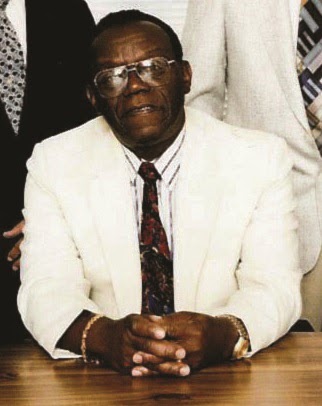Abandoned Battlefield
John
Suarez
June 2, 2001
June 2, 2001
The
battle of ideas surrounding the Cuban revolution in the United States
has not been fully joined. The Cuban freedom movement has lobbyists,
congressmen, journalists, and a couple of foundations and centers
focused on opinion makers and politicians in the United States. The
Castro regime has all that and more. The pro-Castro lobby is outspending
the freedom movement 10 to 1, and they have engaged with grassroots
left-wing allies at the local level nationally and in the academia.
Last
month, members of the Free Cuba Foundation joined together with
California Young Americans for Freedom and Free Vietnam Youth and
embarked on a lecture tour of the state of California. What we found was
that representatives of the Castro regime had already been visiting
colleges and community centers throughout the entire state for years.
Even young Conservatives who are ideologically anti-communists knew
little about Cuba other than they were against what the communists were
advocating.
From
Orange County in the south to San Francisco in the north of California
revolutionary icons were everywhere to be seen. Che Guevara emblazoned
on posters and t-shirts. Speaking at the University of California, Davis
and translating for ex-political prisoner Eusebio de Jesús Peñalver Mazorra at the University of California, Santa Barbara we realized that
in the battle of ideas in many parts of the United States the pro-Castro
forces have a monologue even more one sided than Castro's in Cuba.
In
Cuba the dissident movement although often imprisoned, driven into
exile, tortured, and in some cases murdered by the regime is known and
has an impact at the grassroots level, and via Radio Marti on a national
level in Cuba. The difference between what takes place in Cuba and what
is taking place here is the double tragedy. In Cuba the tragedy is that
the regime in power systematically attempts to silence the pro-democracy
movement using the power of the police state they have erected. In the
United States the tragedy is that Cuban Americans have the right to
challenge the regime throughout the country, but have largely confined
ourselves to New Jersey and Miami.
The
reasons for this abandonment of the United States grassroots campaign
are two-fold:
First,
pro-democracy groups have been working outside of the United States to
gather support in Latin America, Europe, and Asia. The vote in Geneva
condemning the Castro regime's human rights record is partly a result of
this effort, and is of great importance and needs to be continued.
Secondly,
the United States has at the level of the Federal government maintained
a more or less steadfast policy maintaining sanctions, and denouncing
the human rights violations in Cuba. Pro-democracy groups have
maintained offices in Washington DC to lobby the US Congress and the
Executive branch.
This
was a suitable strategy while the Cold War was going on, and Castro was
receiving his subsidy from the Soviet Union and exporting revolution
throughout Latin America and Africa posing a strategic threat to the
United States as an arm of the Soviet empire. The collapse of the Soviet
Union and the end of the Cold War changed that calculus. The regime
since at least the early 1990s has sent young communists to speak on
college campuses. They have engaged with elements of the New Left and in
recent years have built coalitions with business interests that want to
trade with nations like Cuba, Libya, Iraq, and Iran.The pro-Castro
coalition in the United States spans the ideological divide, and has
even more lobbyists, congressmen, journalists, foundations and
politicians at their disposal than does the Cuban freedom movement. In
addition, the pro-Castro coalition has been working the grassroots to
expand their coalition into areas the freedom movement has not even
tapped into on a sustained basis.
The
pro-Cuban freedom movement needs to find its friends all across the
ideological divide, and needs to break the monologue that the pro-Castro
side has maintained in too many parts of the United States. The freedom
movement needs to speak truth to power, and live by the very same
liberties the movement wants to see in Cuba. The ends do not justify the
means. The freedom movement inside of Cuba is based on a non-violent strategy consistent with its end goals. The freedom movement abroad must
follow their lead. Violence and human rights violations are the tool of
the Castro regime and his coalition.
We
live in a world in which the most powerful countries are democracies:
USA, UK, France, Germany, Japan, Spain, Canada, Mexico, Argentina,
Chile, Taiwan, and South Korea just to name a few. The movement inside
of Cuba following the path of Gandhi and King will gain the support of
the world with an effective freedom movement abroad echoing their
actions and statements while at the same time denouncing the human
rights violations of the regime. Ricardo Bofill, one of the founders of
the Cuban Committee for human Rights, has spoken and written often about
the importance of engaging the regime in the battle of ideas.
Many
thought that with the collapse of the Soviet empire that the idea of
communism would've fallen onto the ash heap of history they were wrong.
The name may have been changed, but the hatred of capitalism, and the
defense of left-wing tyrannies continue unabated. We must engage in the
battle of ideas to win Cuba's freedom.


No comments:
Post a Comment